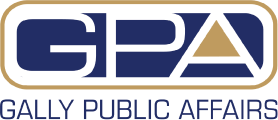We’ve led a number of successful initiatives during our 20 years in Annapolis. Here is a brief look at some of our bigger wins over the past session.
General Assembly Session Update 2022
Policy Wins
It was a great year for our clients in the General Assembly. Here are just some of the victories we helped them achieve.
Climate Solutions Now Act of 2022
This landmark legislation is considered one of the best state laws on the subject. It makes broad changes to the State’s approach to reducing statewide greenhouse gas (GHG) emissions and addressing climate change. Among other things, the bill (1) increases the statewide GHG emissions reduction requirement and requires the State to achieve net-zero statewide GHG emissions by 2045; (2) establishes new and alters existing energy conservation requirements for buildings; (3) increases and extends specified energy efficiency and conservation program requirements; (4) establishes requirements for the purchase of zero-emission vehicles (ZEVs) in the State fleet; and (5) establishes new entities and new special funds to support related activities. (represented clients Chesapeake Bay Foundation, League of Conservation Voters, The Nature Conservancy)
Cat Declaw Ban
Maryland became the second state to ban cat declawing except for the immediate health of the cat. Performing a declaw is a civil offense and veterinarians face disciplinary action from the Board of Veterinary Examiners. Declawing for the preference of the owner is no longer legal. (represented client The Paw Project)
Medicaid Coverage of Self-Monitored Blood Pressure
This bill will help reduce one of the nation’s leading preventable causes of death. Starting January 1, 2023, Medicaid is required to provide coverage for self-measured blood pressure monitoring for all Medicaid recipients diagnosed with uncontrolled high blood pressure. Coverage must include (1) the provision of validated home blood pressure monitors and (2) reimbursement of health care provider and other staff time used for patient training, transmission of blood pressure data, interpretation of blood pressure readings and reporting, and delivery of co-interventions, as specified. (represented client The American Heart Association)
Protecting Firefighters from Deadly Chemicals
The George “Walter” Taylor Act will help protect our fire-fighters from getting cancer and other diseases in the line of duty. The law establishes and expands several prohibitions and requirements that relate to the manufacture, sale, and distribution for sale or use in the State of specified products that contain “intentionally added” “PFAS chemicals.” Existing penalties apply to violations. The bill establishes related reporting requirements and requires the Maryland Department of the Environment (MDE) to adopt regulations to implement certain provisions of the bill. The bill also requires MDE to take back and dispose of Class B fire-fighting foam from fire departments upon request, as specified, and requires the Governor to include in the annual budget bill for fiscal 2024 an appropriation of $500,000 to MDE for this purpose. (represented client Natural Resources Defense Council)
Budget Victories
We are commonly known in Annapolis as one of the top firms when it comes to working the budget. We did pretty well for our clients this past session, including:
- Increasing a planned 3.25 percent rate increase for opioid treatment providers to 7 percent. (MedMark Treatment Services, Inc.)
- $500,000 for the Chesapeake Bay Foundation in the Capital Budget for various infrastructure projects on its properties. (CBF)
- $439,296 for Chesapeake Bay Foundation’s Environmental Education Programs in the Operating Budget (CBF)
- $18 million for statewide tobacco prevention and cessation program (American Heart Association)
- $46.2 million for the Chesapeake and Atlantic Coastal Bays 2010 Trust Fund (CBF)
- $15 million for the new Tree Solutions Now program (CBF)
- $198 million for the Water Quality Revolving Loan Fund (including $46 million from Federal infrastructure funds. (Maryland League of Conservation Voters)

